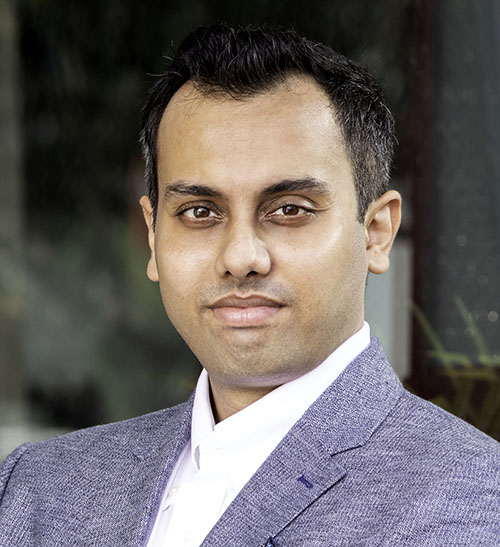The skills shortage in the IT industry shows no sign of improving. In fact, there may be grounds for pessimism.
The reasons for the problem are complicated but I was told anonymously by an industry insider who has worked in IT for many decades that the question might need to be turned on its head in order to move towards some sort of answer.
He suggested that first of all I consider why highly-skilled technicians working in the industry aren’t staying in their positions.
He stressed concerns about how such people feel the need to move on as they often get stuck on projects they constructed and end up spending endless days working on maintenance. The inevitable consequence of this is that they feel the need to move on so they can update their skills.
Worryingly, he told me, that many companies prefer to hire contractors to work on the more progressive projects, rather than stretching the capabilities of their in-house team.
If we widen the remit slightly we can consider why young talented and intelligent students might not be attracted into the industry after they leave university.
No doubt word gets around among graduates that IT changes very quickly with the pace of change more rapid than in many other sectors.
They are also probably switched on to the fact that working in IT can involve tedious tasks, requiring an abundance of patience, checking and tweaking code.
But such work is also high-risk as one mistake can have a disastrous impact on a whole project. Such a high-degree of responsibility may not be to everyone’s liking.
We asked three industry experts for their opinions on the subject. Here are their responses.

Yenny Wong, Head of Talent Acquisition, New Relic APJ
Attracting and retaining tech talent has become increasingly challenging across the region. During the pandemic we saw many skilled workers on visas returning to their home country. And due to fairly strict regulations on immigration, it was very hard to get tech talent from overseas, resulting in stiff competition for a small pool of existing talent.
There was a two-pronged brain drain if you will – overseas talent returning to their home countries, while local talent was being lured overseas with highly attractive packages that are hard to compete with (locally).
Broadly, enterprises can tackle the skills shortage with:
• Flexibility. People want a hybrid work model and companies that force employees to go into the office are probably going to face a bigger brain drain.
• Fostering a great culture. While companies with deep pockets can offer highly attractive salary packages, if the work isn’t meaningful or the culture is toxic, top talent won’t stick around.
• A growth mindset: If employees, especially engineers are doing meaningful and interesting work, and given the opportunity to grow by learning and being challenged in a good way, they are likely to stick around.
• The right tools. This enables engineers to do their best work, not menial tasks and firefighting.
We’re proud that in keeping with our commitment to driving meaningful progress toward Diversity, Equity and Inclusion, New Relic has achieved racial and gender pay equity. In other words, New Relic compensates similarly experienced Relics at the same level when they perform the same or similar job duties, regardless of their gender or ethnicity.
We recognize that pay equity is an important step toward making New Relic an equitable workplace for all Relics, but it’s only part of our long-term DE&I strategy. To build true equity, we are also focused on driving true systemic change and continuing to increase the representation of women, including in technical and leadership roles.
Another example which we’re very proud of is partnering with Carrot to provide employees with inclusive, comprehensive fertility and family-forming benefits.
In a nutshell, New Relic offers a robust benefits program that includes flexible work arrangements, company equity, paid parental leave, emotional support assistance, wellness funds, professional training and career development, family healthcare and competitive pay.
It’s crucial to ensure that employees feel fulfilled at work, and incumbent on all employers to provide them with the best environment and tools to help them flourish. As an organization, we are committed to building and fostering a truly diverse, equitable and inclusive New Relic.

Luan Tran, Chief Technology Officer, Cyara
From border closures to remote working, the pandemic caused global upheaval across recruitment and retention.
At Cyara, we adopted the mindset that in order to find the best people we need to be proactive rather than wait for them to come to us. We stopped relying on recruitment agencies and invested in our talent acquisition, building a team that has a voice at Cyara’s decision-making table, especially around culture and technology; two areas that make a significant difference in attracting and retaining employees.
By evolving our talent acquisition business process, we now provide every candidate with the best chance of a positive experience. This includes acknowledging every application with a response from a person who is contactable and providing timely feedback.
Our hiring managers are trained to identify transferable skills buried within a CV and if candidates don’t have the skills needed for the role they have applied for, the team looks for other roles within the company. The aim is to treat candidates how we would want to be treated and, in doing so, hope that unsuccessful candidates will re-apply for more roles with us in the future.
Once new employees have joined us, they access an onboarding specialist. This is an important early step to ensure employees understand the values we stand for while also enabling them to excel at what they do. Career development planning with every employee enables us to identify where additional training can support growth and career aspirations.
Developing internal programs sits at the very core of our talent strategy. We always look within our teams for potential internal talent moves and promotions before recruiting externally. While attrition does happen, it’s important to actively work towards reducing the possibility at every touch point. By constantly collecting and analyzing data we can better understand the sentiment of the team and identify potential gaps before they start to take hold.
The skills shortage and squeeze on talent has reinforced how important it is for companies to invest in retaining their employees. Happy, engaged employees are key to the success of any organization. Work-life balance is not about hours worked versus time spent with family, but ensuring staff are supported around wellness and mental health. We also offer annual learning stipends and fitness, wellness, and beauty benefits to all employees.
More broadly, enterprise leaders must play their part in supporting a new generation of tech talent. Our team collaborates with universities on internships while our CEO advises programs and groups that have been created to nurture future changemakers – giving students the opportunity to actively imagine, design and build new technologies and systems, while working with industry to develop job-ready skills.

Nik Vora, Neo4j Asia-Pacific Vice-President
For the past two and a half years, companies have faced an increasing skills shortage brought upon in part by the pandemic. From having to pay salaries that have increased exponentially to meeting the needs of a workforce clamouring for remote and hybrid work, companies have had a myriad of issues to deal with in the recruitment and retention of staff.
In such a tight labor market, particularly for skill sets such as what we require at Neo4j, we have been very fortunate to have a talented engineering team that is well connected. As such, referrals have been a big source of hire for us.
We are also investing heavily in growing our recruitment team, which will enable us to proactively seek out candidates that would be a good fit for Neo4j. Being a technology company, we are also expanding our tech stack and sourcing tools.
We generally have high employee conversion rates once we find the right candidates during the recruitment process but we cannot rest on our laurels as the talent crunch is an issue that is expected to continue for some time to come, and so we need to look at new and innovative ways of attracting the best talent there is.
Employee retention plays a big role at Neo4j as we want to keep our employees happy and engaged, and be able to offer on-going career opportunities to staff.
As such, two-way communication between management and staff is essential. We schedule regular catch-ups between employees and managers by using a tool called 15five, which has a check-in feature teams are asked to fill out monthly.
Managers review these and respond accordingly. It gives a great pulse check on how individuals are feeling and we can then take the appropriate steps to support them as needed.
Employees are the main contributor to the success of our business. It’s important that they are supported and looked after. We deliver surprise care packages and have established a work from home stipend to help employees on the home front to assist them with working from home.
This was particularly important during the pandemic where we had to shift to remote working.
To mitigate burnout, Neo4j has also added additional holidays, and extended others (such as in the US, 4th of July and Labor Day), to give employees a bit more time away from work in an age where unplugging is a perpetual challenge.
From a professional development standpoint, we’ve increased the opportunity and budget for external learning opportunities and worked closely with managers to effectively and inclusively lead diverse, remote teams to foster efficiency and a sense of belonging.


